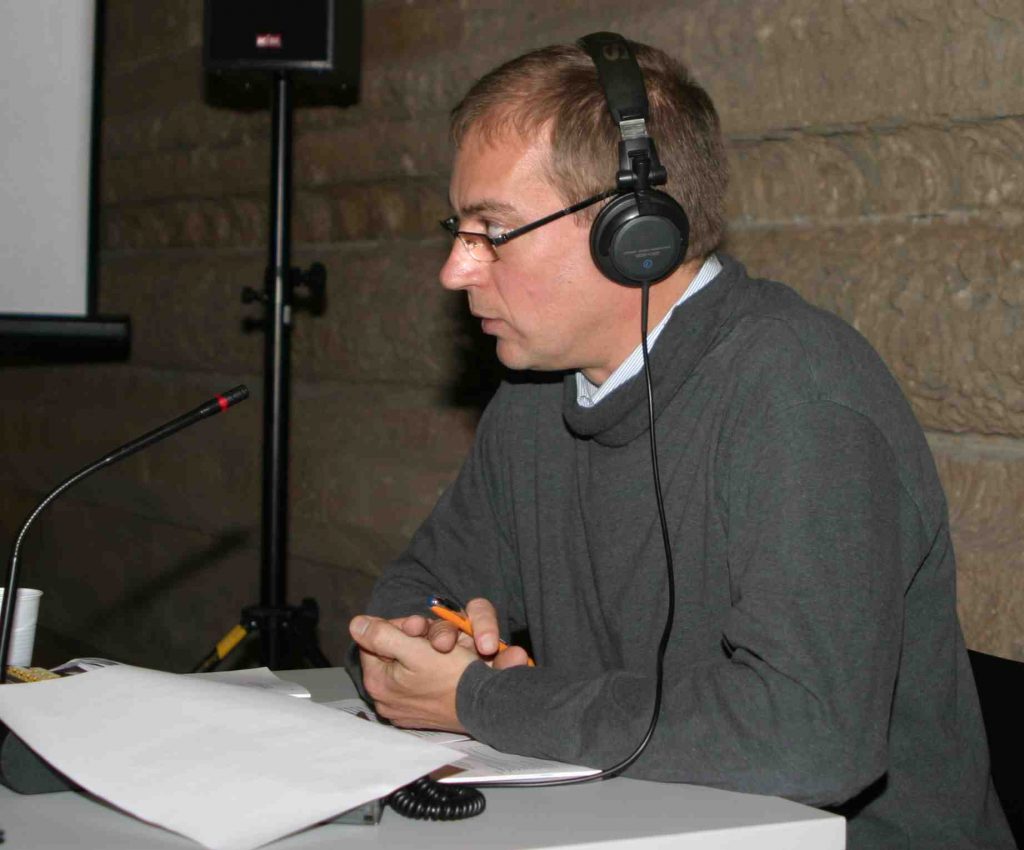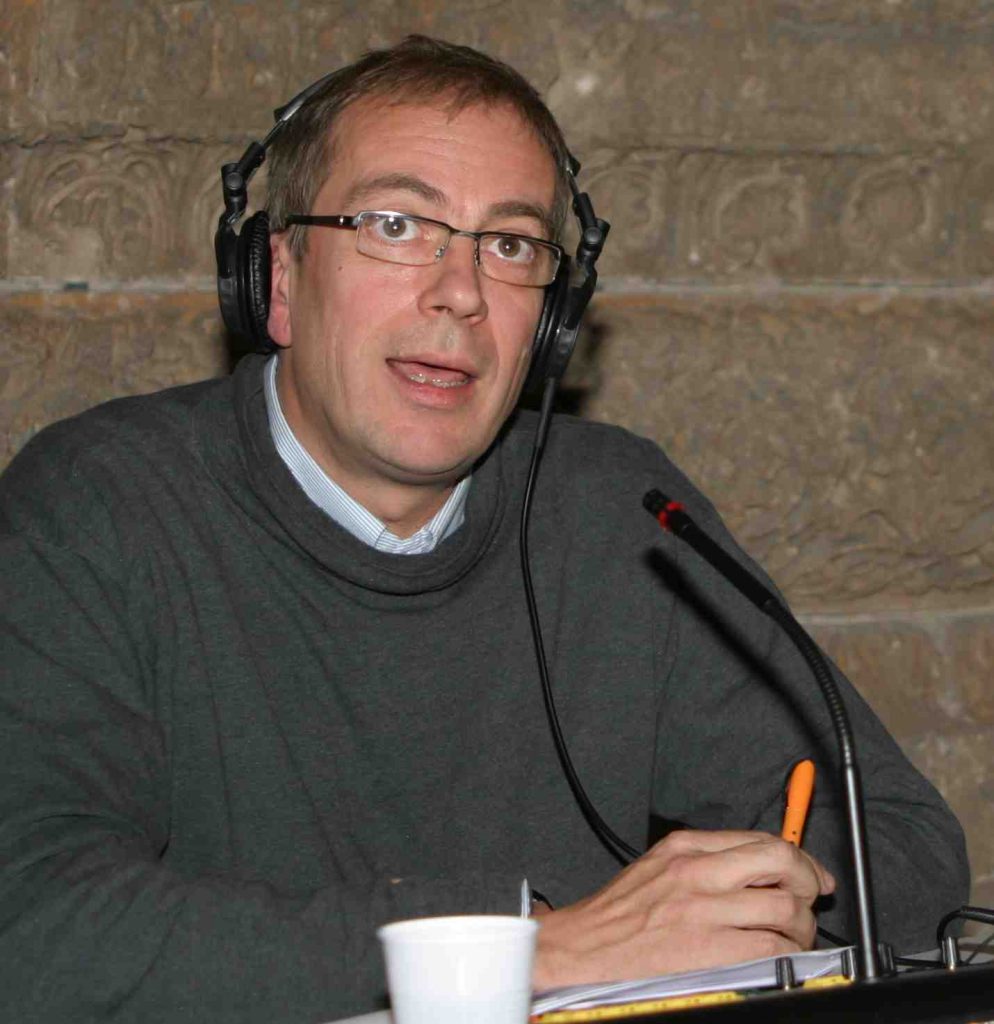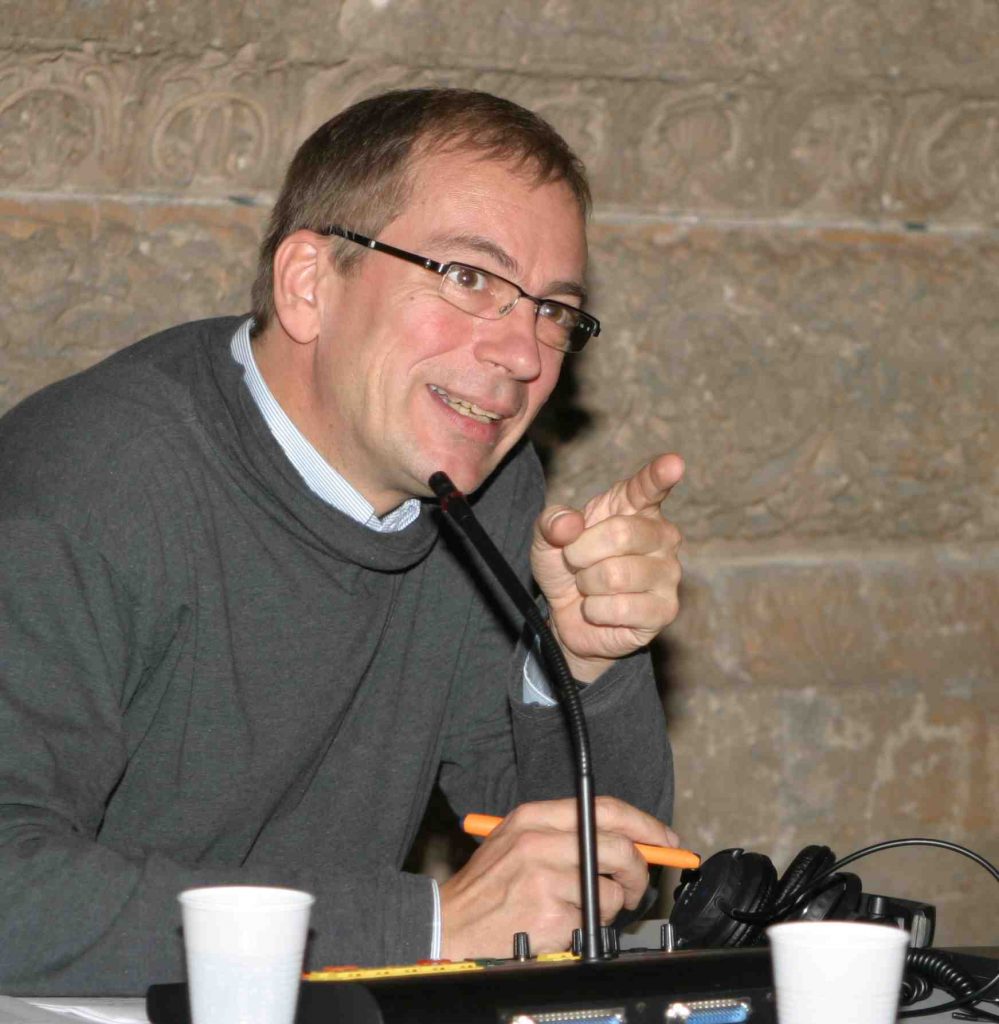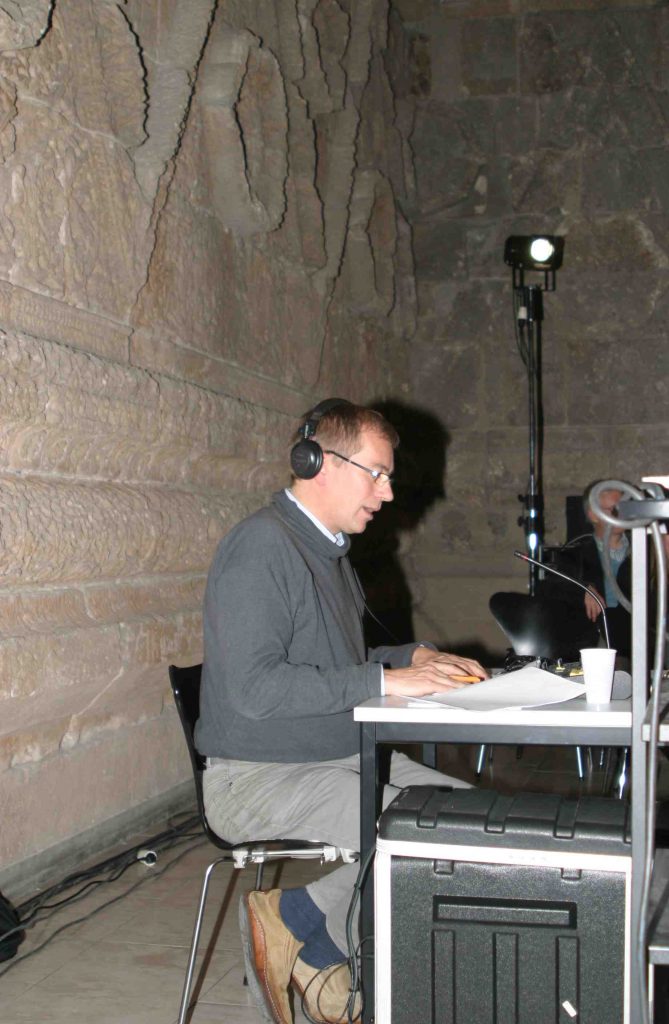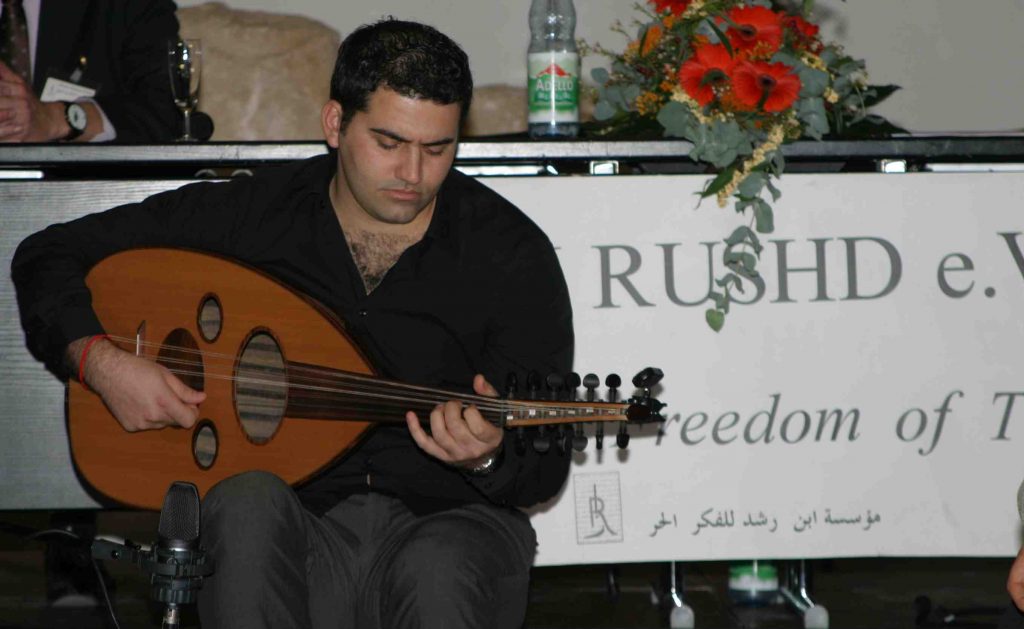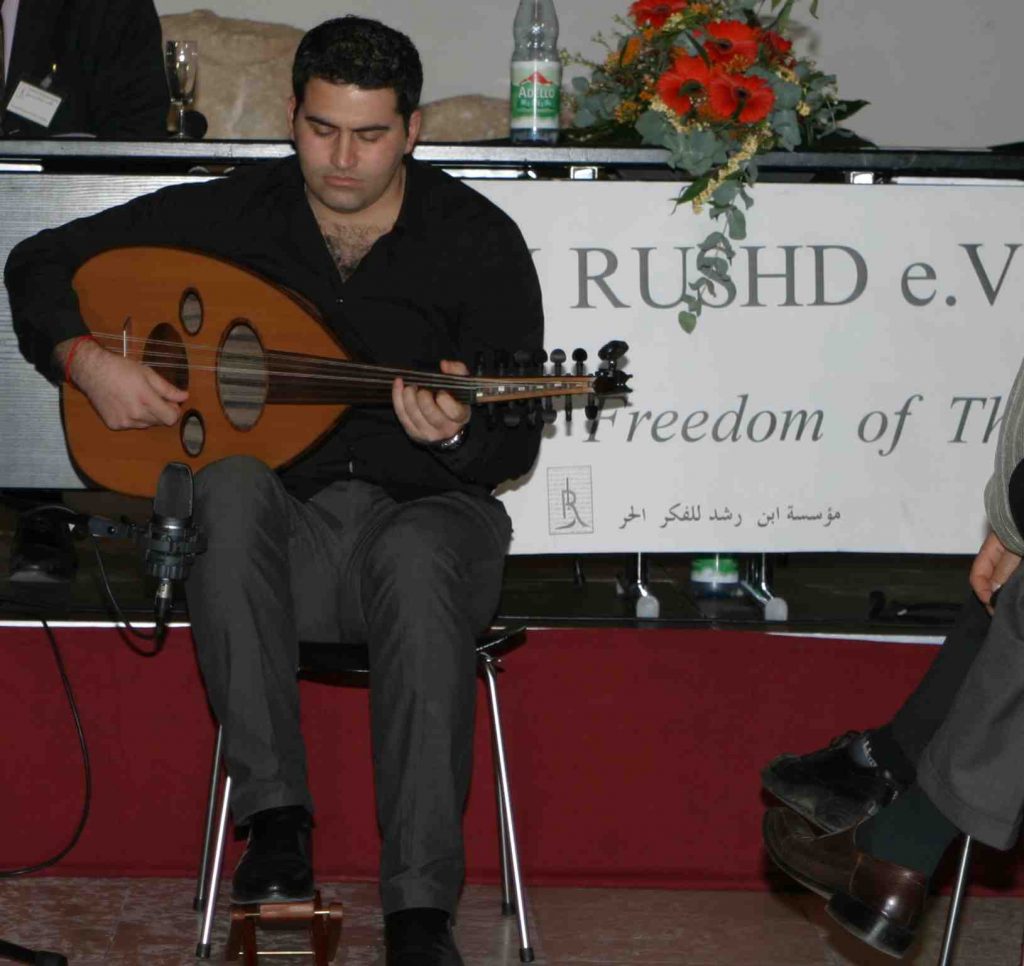al-Hewar al-Mutamaddin
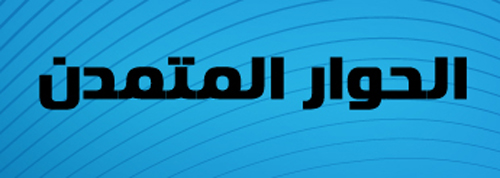
was awarded to a webblogger, a person (natural or juristic, a real person or an entity/group), who distributes his or her own content or provides an internet-platform for the purpose of freedom of thought by using the internet and thus fundamentally enriches the open discussion of socio-political topics and contributes to advancing public discourse.
- Call for Nominationالعربية DeutschCall for Nomination The Ibn Rushd Award 2010 calls for a Webblogger who fundamentally enriches and advances public discourse. The internet’s contribution to the transformation of mass-communication is difficult […]
- CV Rezgar Akrawiالعربية DeutschRezgar Akrawi Main coordinator of internet-forum al-Hewar al-MutamaddinCoordinator of Centre for Marxist and Left-Wing Studies and Research Born 1966 in Aqra in Iraq (Kurdistan-Iraq) Political Activity 1984-1990: Member of Iraqi […]
- Members of the juryالعربية DeutschMembers of the jury Ahmed Ashour Ahmed Ashour (born in Jordan 1981) holds a bachelor’s degree in Fine Arts with a major in graphic design from the University in […]
Ibn Rushd Fund for Freedom of Thought Presents the Ibn Rushd Prize 2010 to Internet Platform al-Hewar al-Mutamaddin
On 26th November 2010 Rezgar Akrawi received the 12th Ibn Rushd Prize for Freedom of Thought at the Museum for Islamic Art (Pergamon Museum) in Berlin. The prize is awarded to honour al-Hewar al-Mutamaddin’s efforts in establishing an open and civilized discourse between members of Arab societies. The forum gives authors and readers the opportunity to discuss in an open and honest way topics that are otherwise taboo, so as to explore and promote together ideas on social progress in a democratic manner.
An independent jury, consisting of four prominent Arab intellectuals, elected al-Hewar al-Mutamaddin out of 13 candidates from 7 countries: Iraq, Morocco, Egypt, Jordan, Syria, United Arab Emirates, Saudi Arabia.
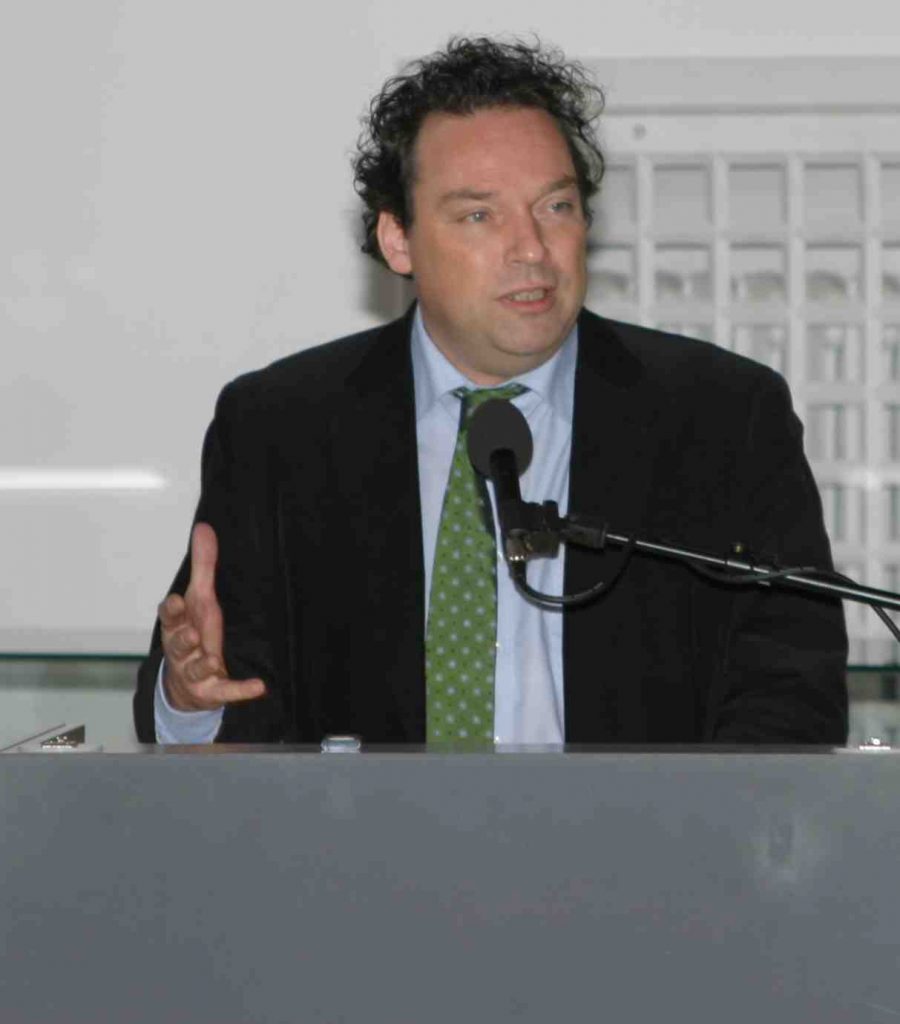
Museum director Dr. Stefan Weber said it is important to make meeting of present cultures possible in the museum and not only of past cultures. He therefore welcomes, that the Ibn Rushd Awarding takes place in his museum, for „History does not just take place, history is made“.
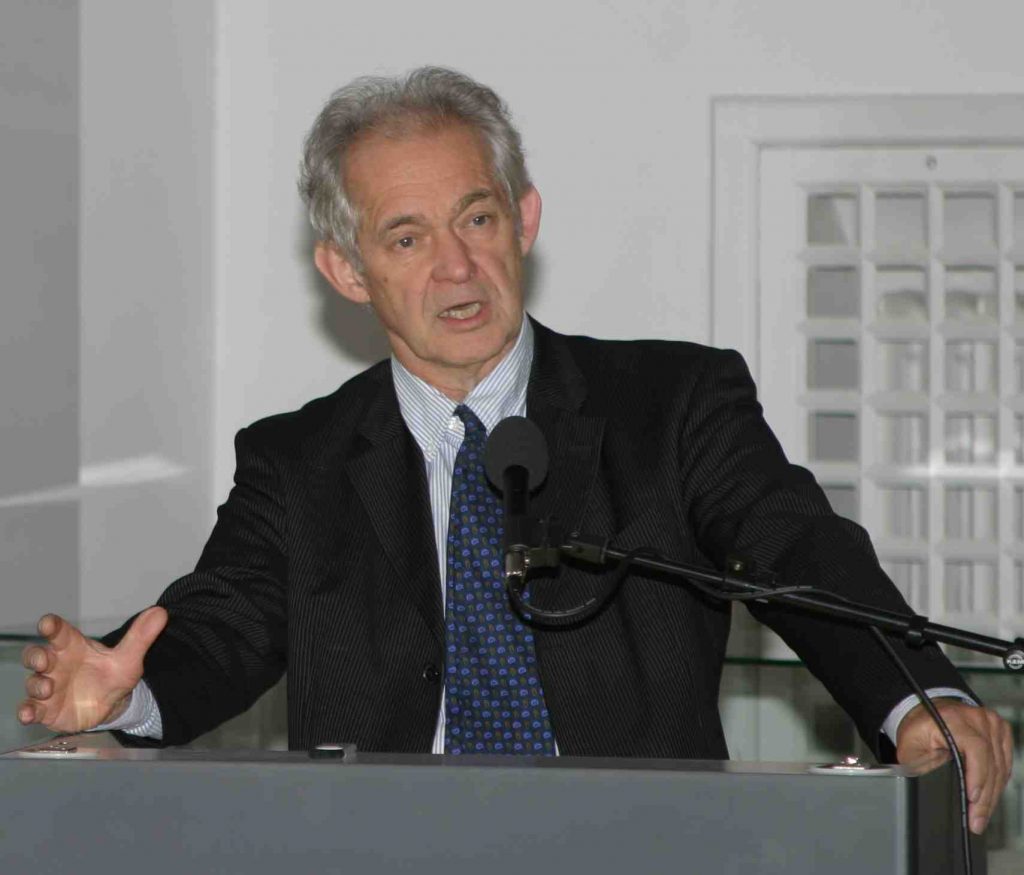
Vize President of German
UNESCO-Commission)
In his welcome speech Prof. Dr. Christoph Wulf (FU Berlin), Vice president of German UNESCO-Commission, congratulates Rezgar Akrawi for his platform winning the Ibn Rushd Prize. Internetplattforms and Blogs are the new virtual variation of ‚Speaker’s Corner’ in Hyde Park in London. Wulf reminds that the neighbour relationship between Ibn Rushd Fund and the UNESCO goes back to 1999, when they both made tribute to Ibn Rushd in two different conferences in „Haus der Kulturen der Welt“ in Berlin.
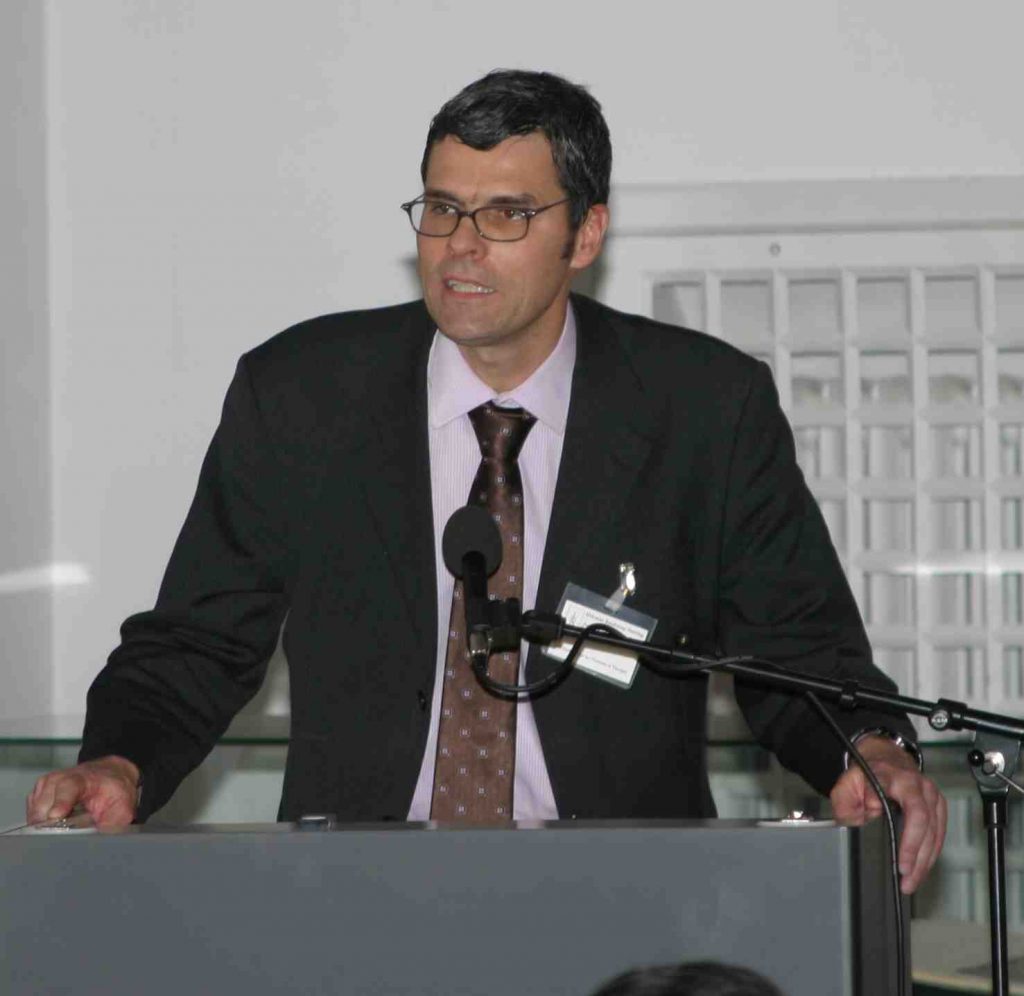
Hikmat Bushnaq-Josting, Chariman of the Ibn Rushd Fund, welcomes all guests and bids the speakers to the stage.
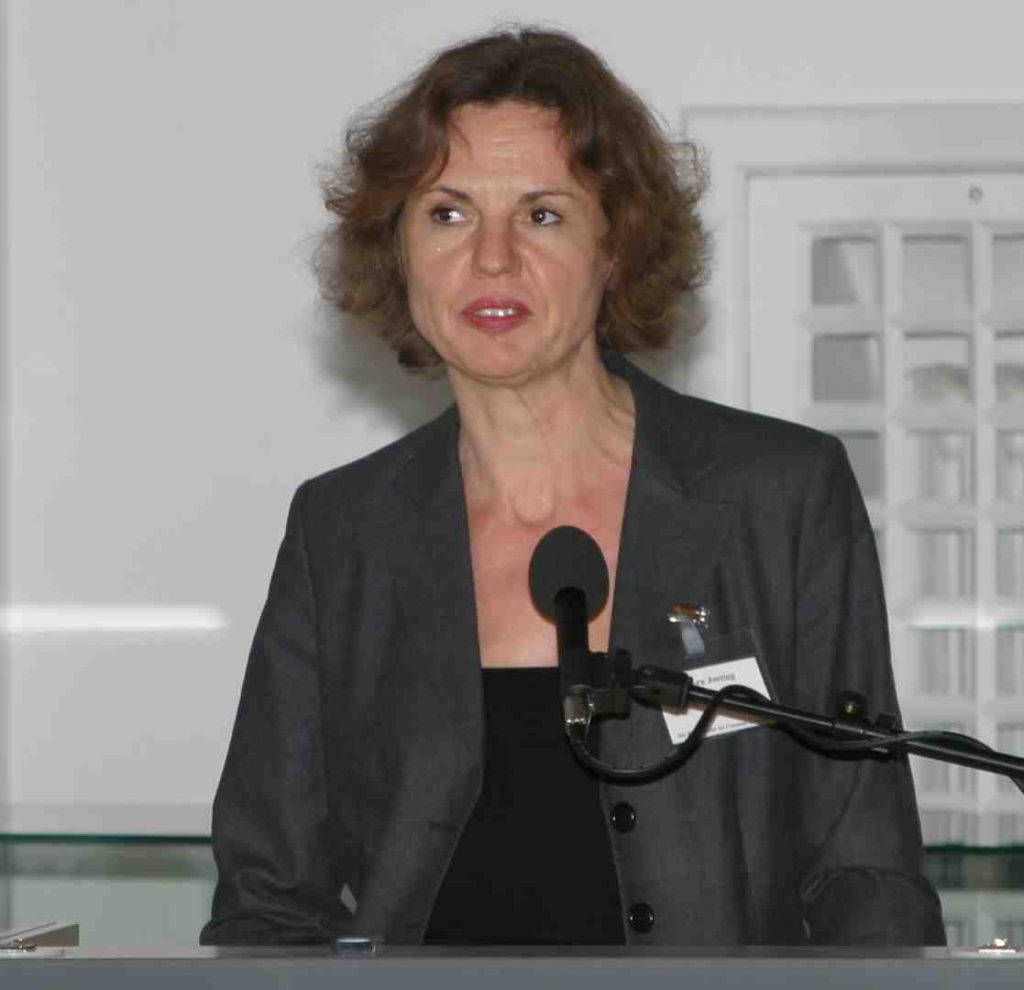
In the Fund’s welcome speech Cora Josting cited Heinrich Heine – „Thinking is free” – and noted that openness is an important value not to be underestimated in civil and free societies. Al-Hewar al-Mutamaddin with its initiative that regards dialogue as the utmost value of civilisation deserves to win the Ibn Rushd Prize for Freedom of Thought 2010.
The Ibn Rushd Fund decided to choose a subject for its 12th prize that is mainly interesting for a jounger generation, whose efforts for freedom of thought is still in process and who therefore needs active encouragement by the Ibn Rushd Fund and the public’s interest in general.
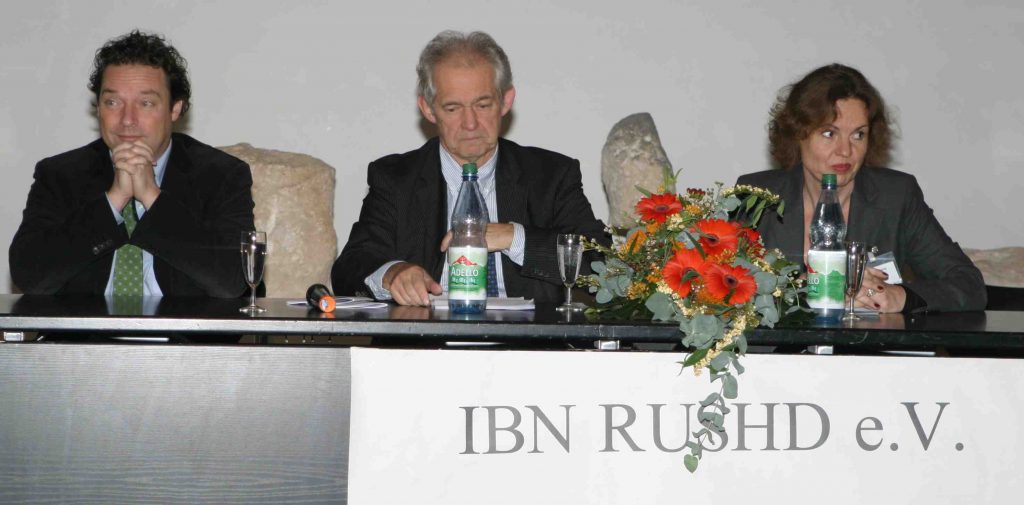
Prof. Dr. Christoph Wulf,
Cora Josting
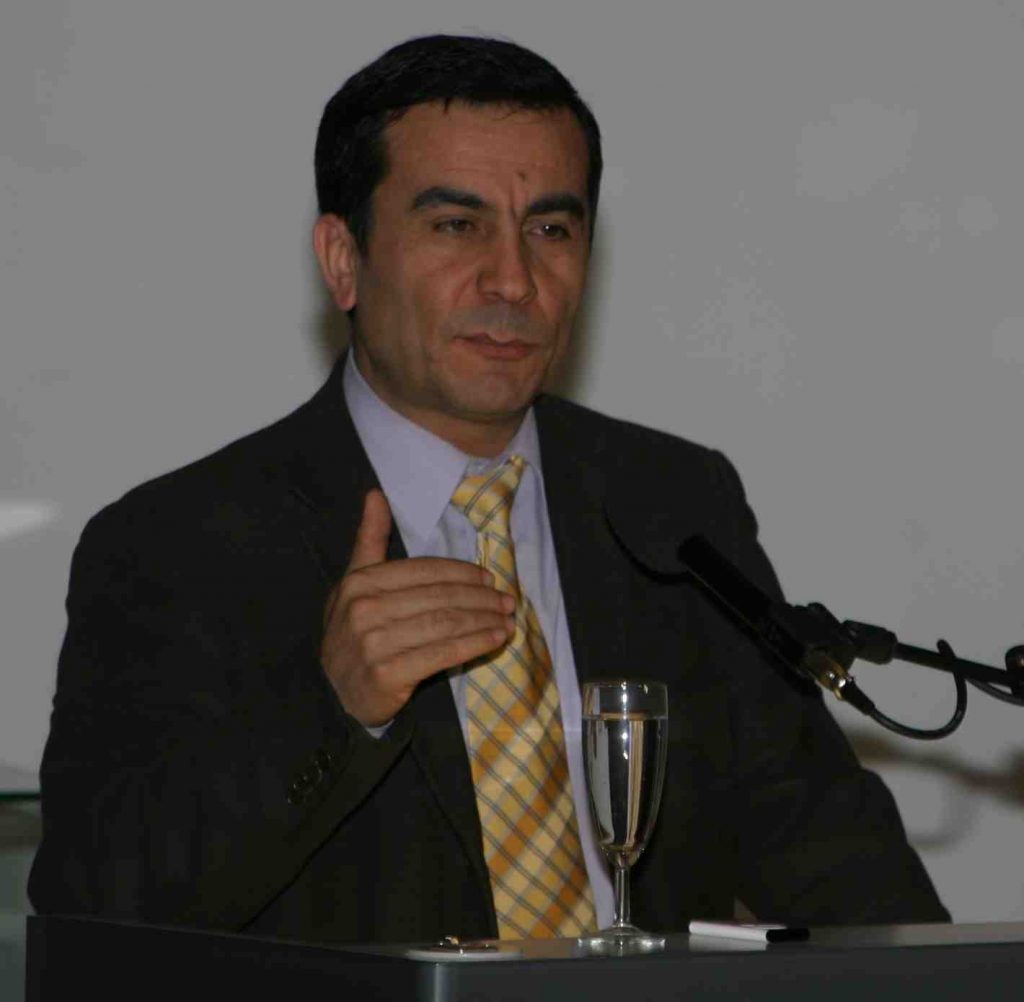
Dr. Khaled Hroub (Cambridge Arab Media Project) invited to a contemplation on the trio Ibn Rushd (Averroes), al-Hewar al-Mutamaddin (civilized dialogue) and Martin Luther, who in the beginning of the 16th century began his reformation movement not far from the hosting cty of Berlin. Ibn Rushd’s criticism unevitably had led to the reformation of religion by Thomas von Aquin, which prepared all of Europe for the following revolution of thought.
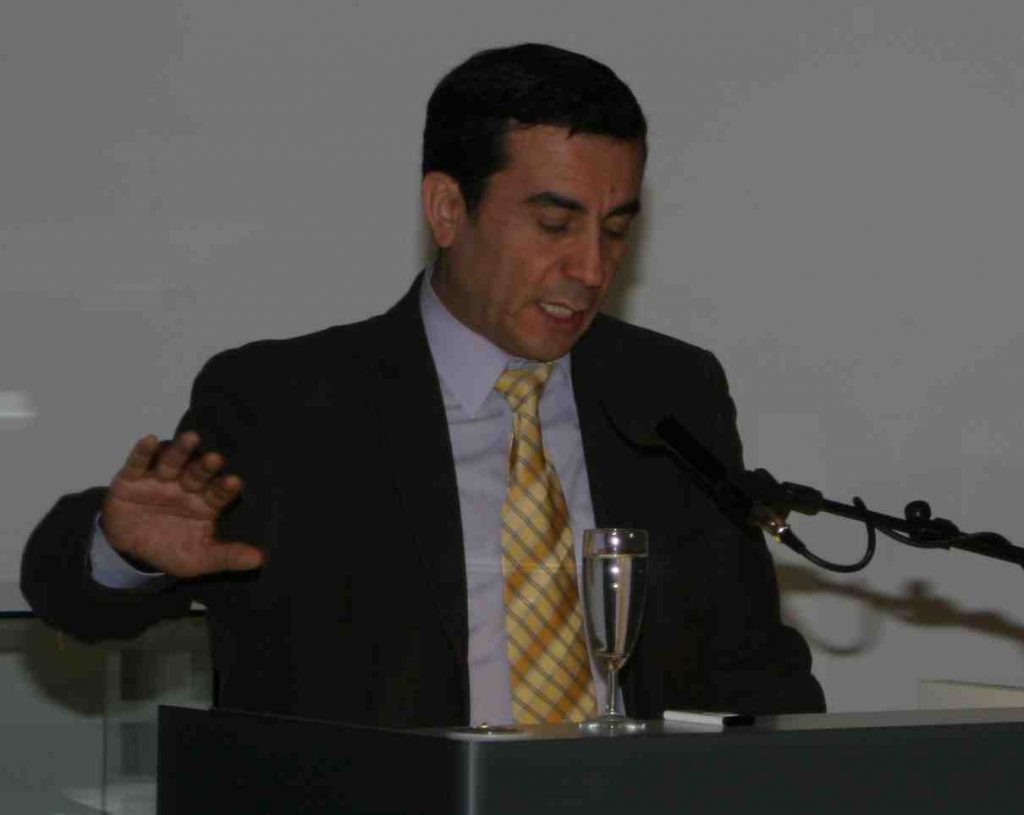
Both Ibn Rushd and Thomas von Aquin laid the basis for the regulations for a civilized dialogue for which the followers of Luther of the Protestant revolution fought for and without which Europe and the West would not be what they are today.
Hroub warned that if one is obsessed by an idea to own the absolute truth a one-dimensional thinking will be developed that will end up in regression. The only alternative is pluralism.
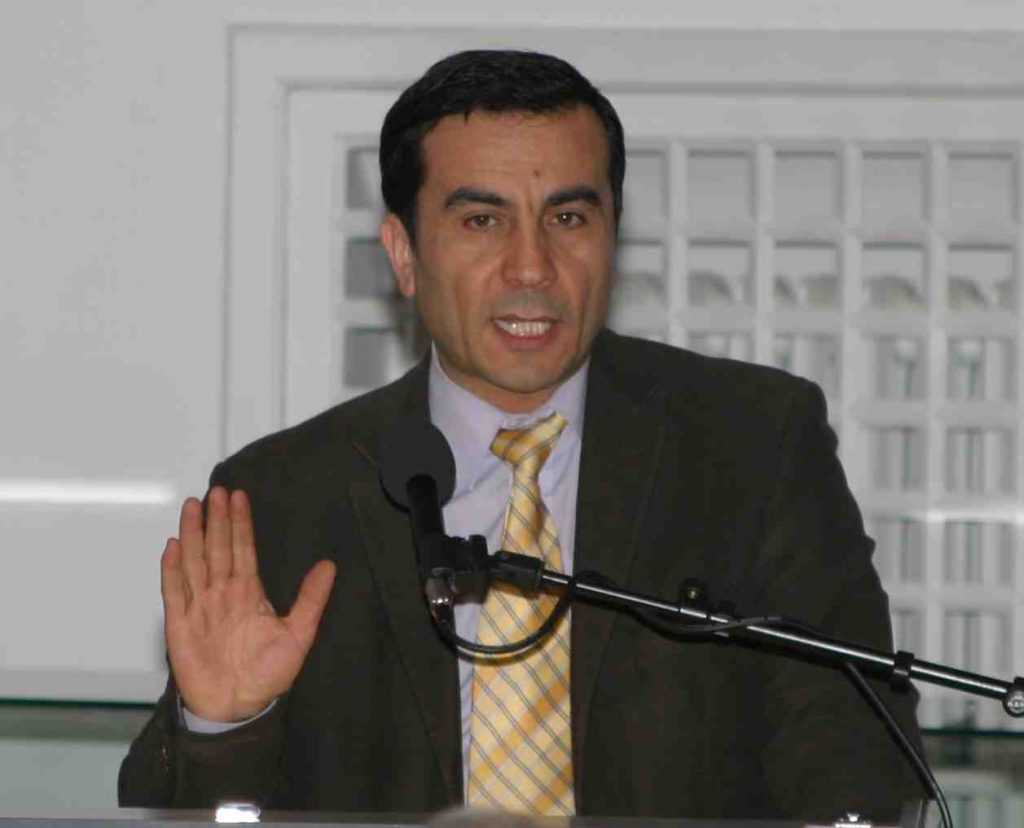
Competing attitudes have to be allowed, everyone has to try to persuade by discussion, good argument and logical reasoning and not by claiming one’s ideas as absolute truth for all human beings. This process for sure is very hard and tedious and sometimes awakens a dangerous yearning for a resolute intervention of strength. The best virtue of all this, says Hroub, is that this process – inpite of all the disadvantages – takes place peacefully without blood shed.
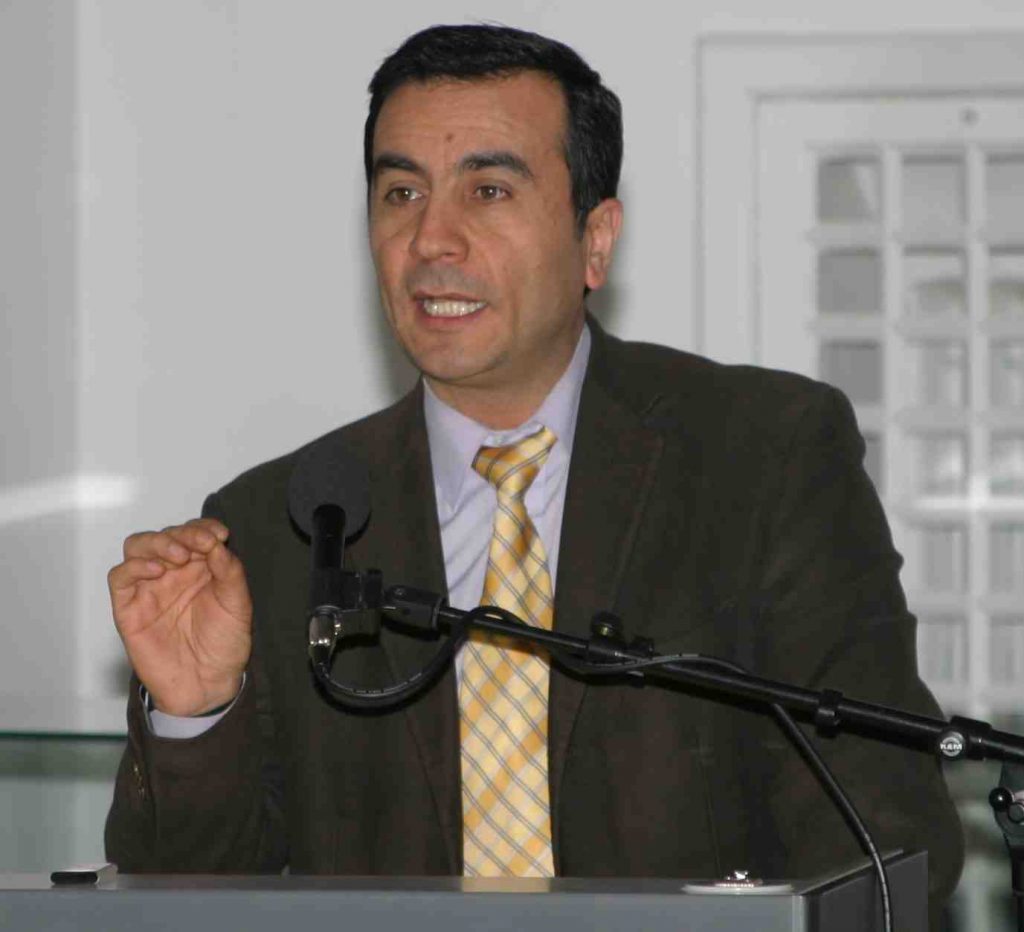
The struggle for reason is an adventure with many dangers, considering the predominant belief in the supernatural. They are the same dangers the diskussion forum al-Hewar al-Mutamaddin of Rezgar Akrawi had the courage to deal with.
The managers of the platform use the openness of the internet to open the door widely and they knowingly take the risk to be personally attacked as disbelievers, traitors or spy. Al-Hewar al-Mutamaddin therefore deserves to be honouured by the Ibn Rushd Fund and its Prize in Berlin. Hroub ends his laudatory speech stating that both of prize winner and the giving fund deserve that Martin Luther raises his hat to both of them in respect and acknowledgement.
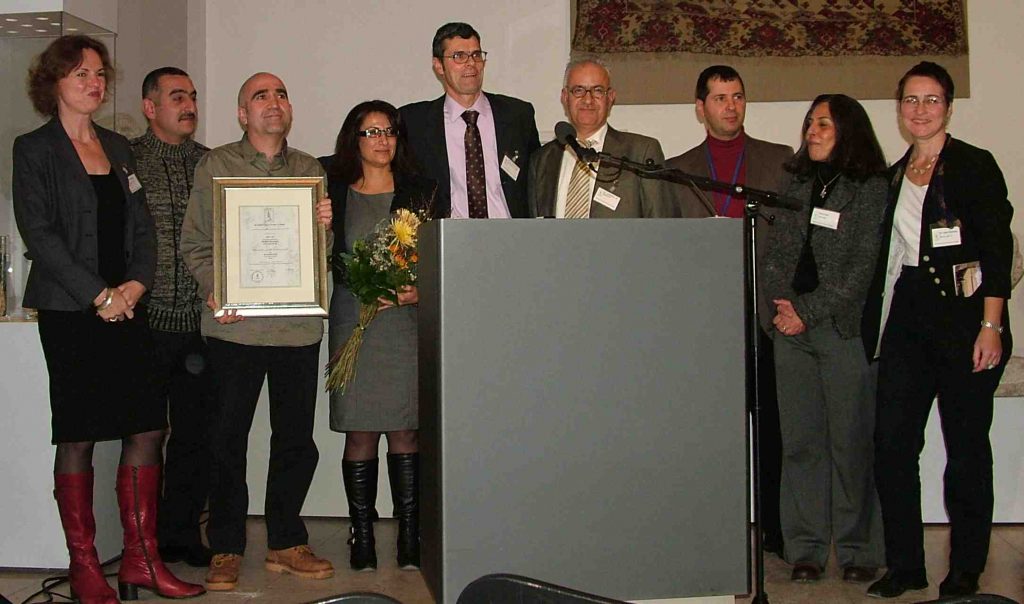

From left to right: Cora Josting, Fawaz Farhan, Rezgar Akrawi, Bayan Gubrail Saleh, Hikmat Bushnaq-Josting, Abdulbary al-Mudarris, Sami Ibrahim, Fadia Foda, Abier Bushnaq 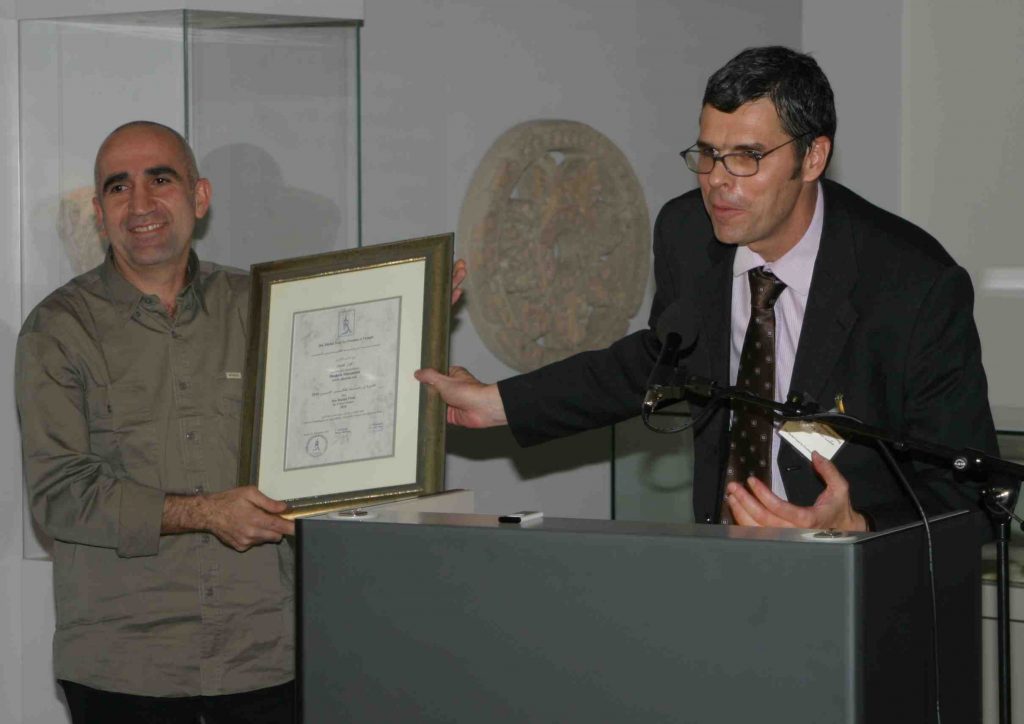
Rezgar Akrawi receives from Hikmat the Ibn Rushd Prize for his internet platforum al-Hewar al-Mutamaddin. 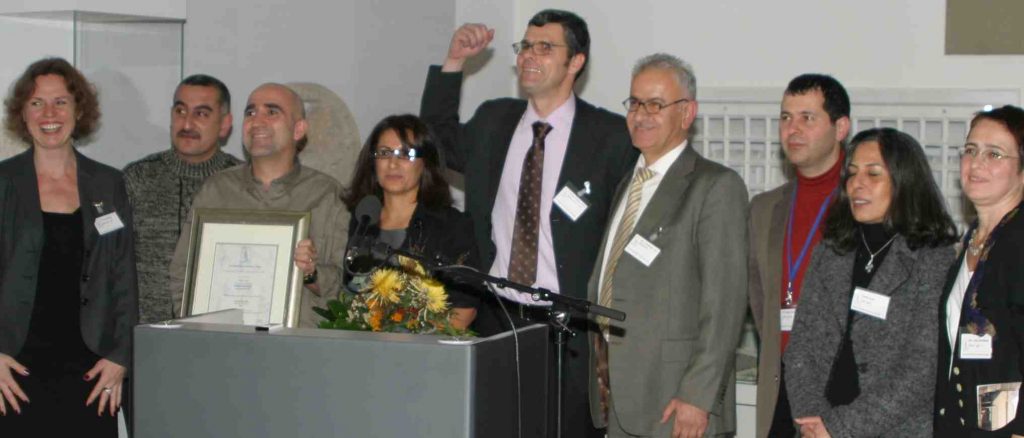
From left to right: Cora Josting, Fawaz Farhan, Rezgar Akrawi, Bayan Gubrail Saleh, Hikmat Bushnaq-Josting, Abdulbary al-Mudarris, Sami Ibrahim, Fadia Foda, Abier Bushnaq
Ibn Rushd Prize for Freedm of Thought is awarded to internet platform Modern Discussion (www.ahewar.org) for its efforts to establish an open, civilized Dialogue in the Arab World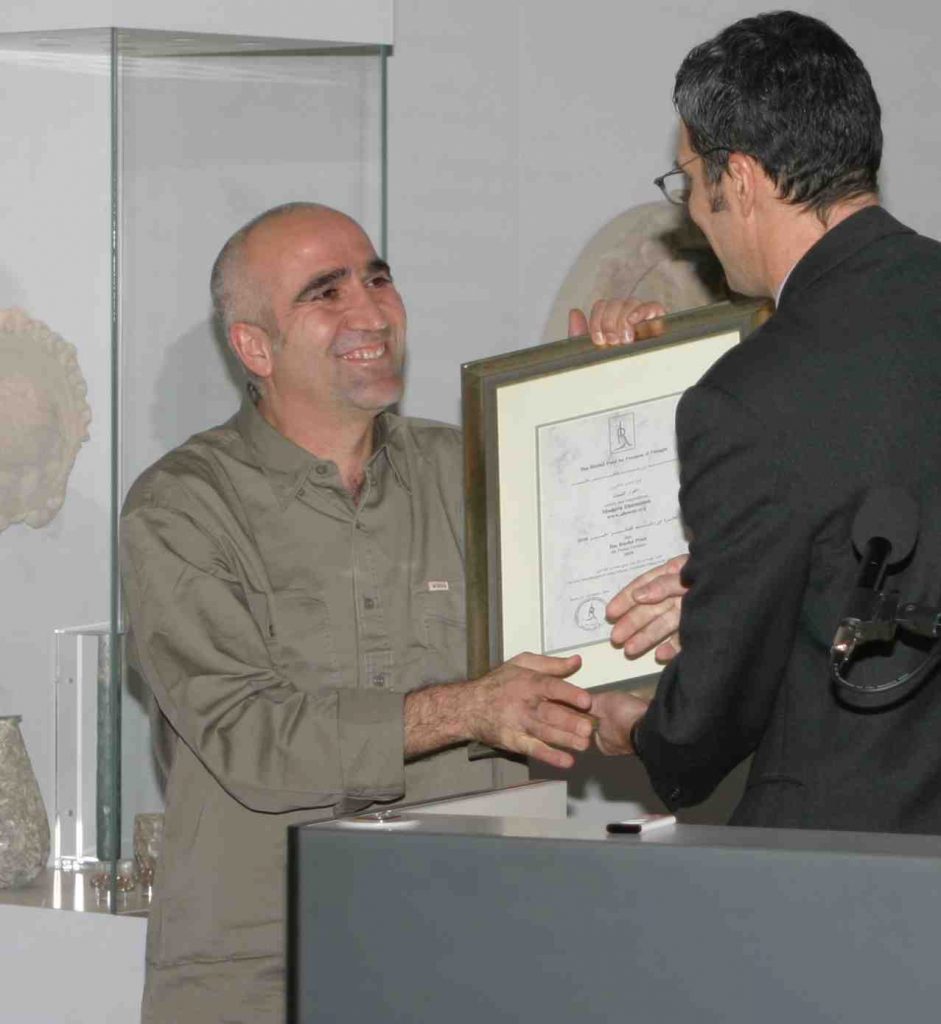
Hikmat Bushnaq-Josting, Chairman of the Ibn Rushd Fund, hand over to Rezgar Akrawi the Ibn Rushd Prize 2010 for al-Hewar al-Mutamaddin.
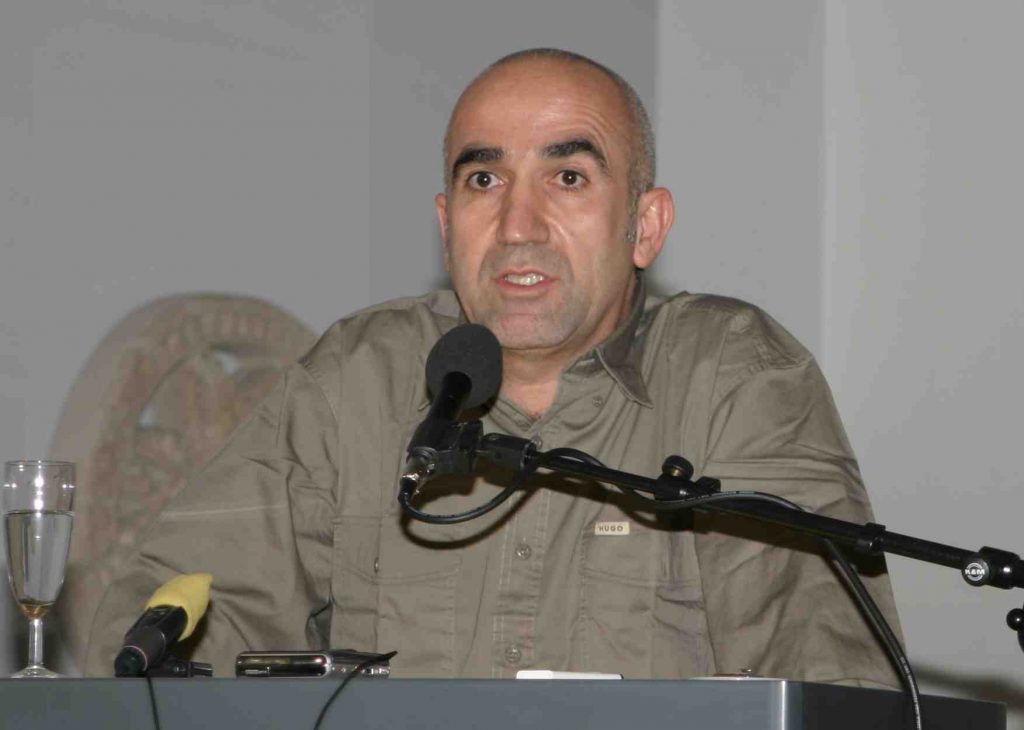
Rezgar Akrawi, founder and main coordinator of al-Hewar al-Mutamaddin, began his speech by presenting the main characteristics of modern communication medium. The interaction between telecommunikation technology and mass media has become reality on cultural and political level.
Modern media has a global character and presence that transcends bourders. Local laws that limit the freedom of press, of religion and free expresion can be avoided. The internet allows a quick report on events that reaches the readers easily and immediately. Akrawi, who understands himself as a left internet activist, wishes a left movement that can reap the full benefits of the communication technological development and is orientated by reasoning and a realistic policy, that regards the individual as most important value regardless of origin, religion or sex, and that believes in gender equality and quota for woman.
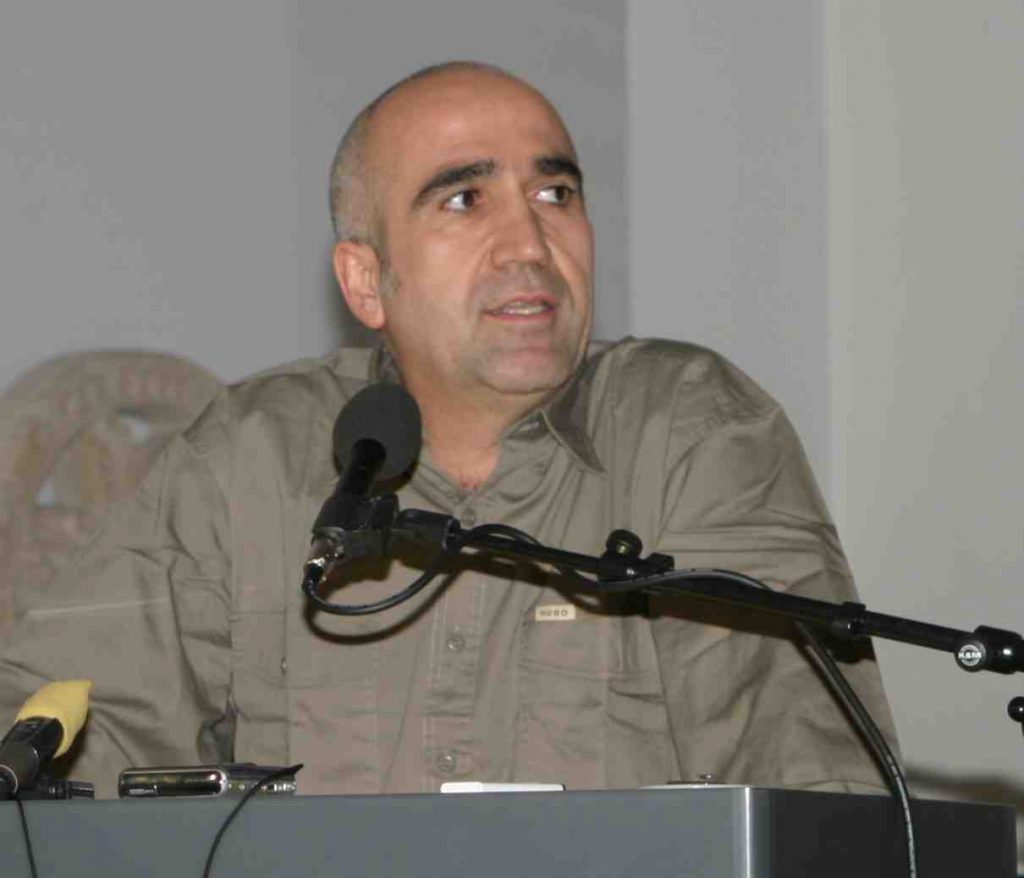
On its pages al-Hewar al-Mutamaddin reveals violations of human rights, especially by its online-campaigns. Al-Hewar al-Mutamaddin vehemently promotes the abolition of capital punishment in the Arab World.
On its website are daily published: 100 essays, 600 comments and 2000 news tickers. More than 15 000 authors contribute to al-Hewar al-Mutamaddin. Until now 200 000 essays were published in all subject fields. More than 160 000 users visit al-Hewar al-Mutamaddin’s pages every day (since its founding more than 310 Millionen users visited its website and about 550 million essays were being read).
Al-Hewar al-Mutamaddin managed to reach primacy over web sites of media service broadcasting and newspaper institutions in the Arab World with a small budget of 20 Dollars in the beginning. The platform finances itself exclusively by Google-advertisment and donations of its authors and supporters.
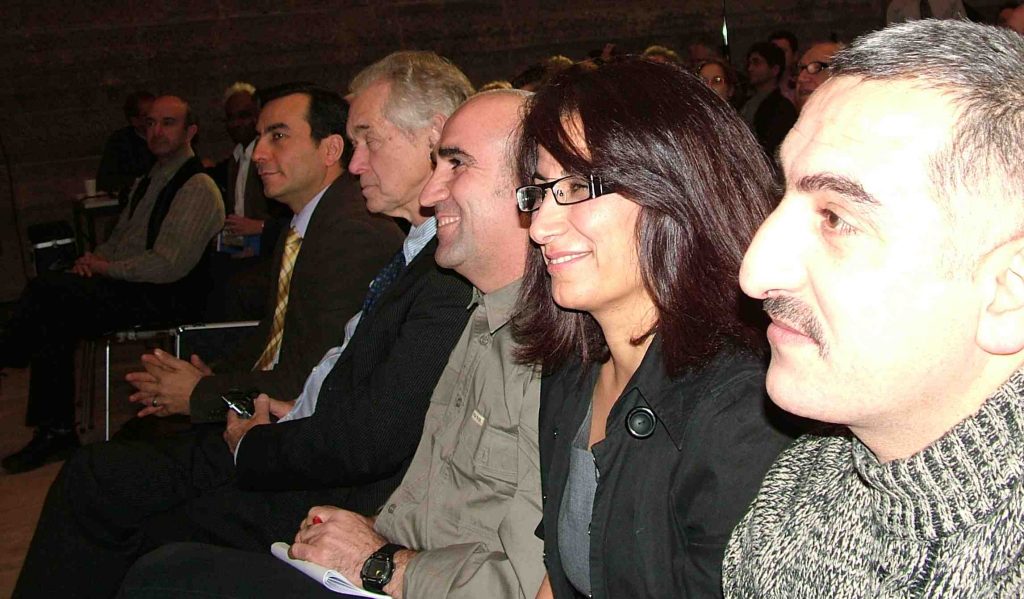
From left to right: Dr. Khaled Hroub, Prof. Christoph Wulf, Rezgar Akrawi, Bayan Gubrail Saleh, Fawaz Farhan 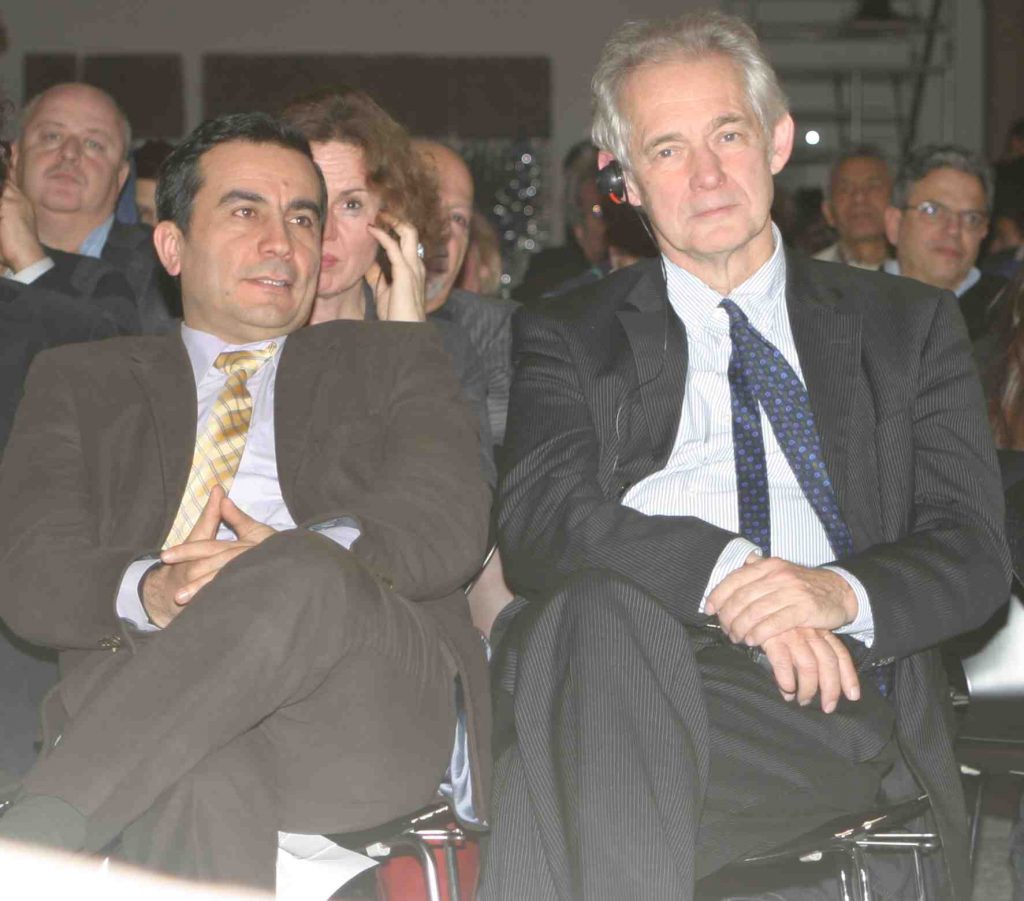
Khaled Hroub, Prof. Dr. Christoph Wulf (FU Berlin), Vice President of German UNESCO-Commission 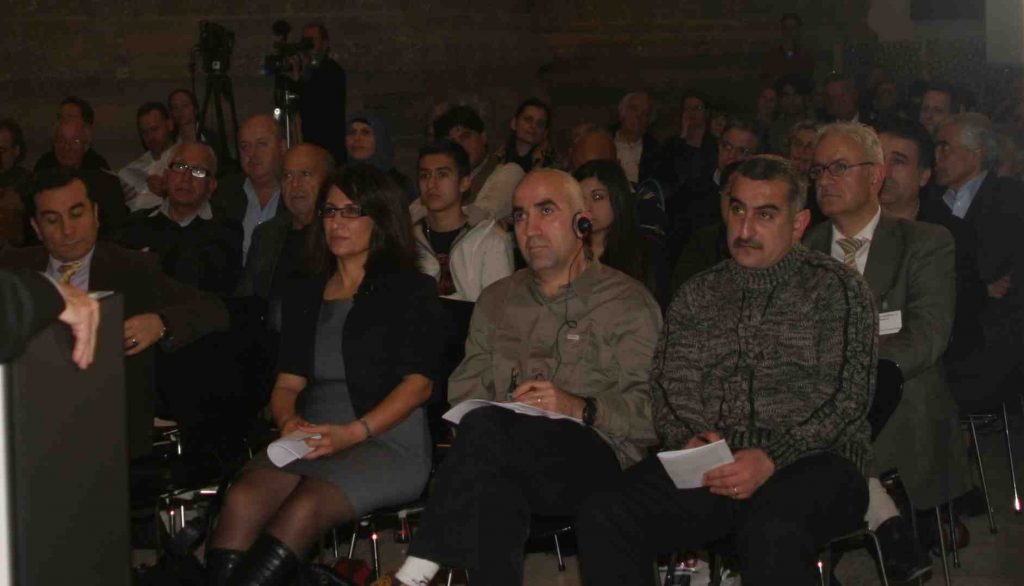
From left to right: Dr. Khaled Hroub, Bayan Gubrail Saleh, Rezgar Akrawi, Fawaz Farhan 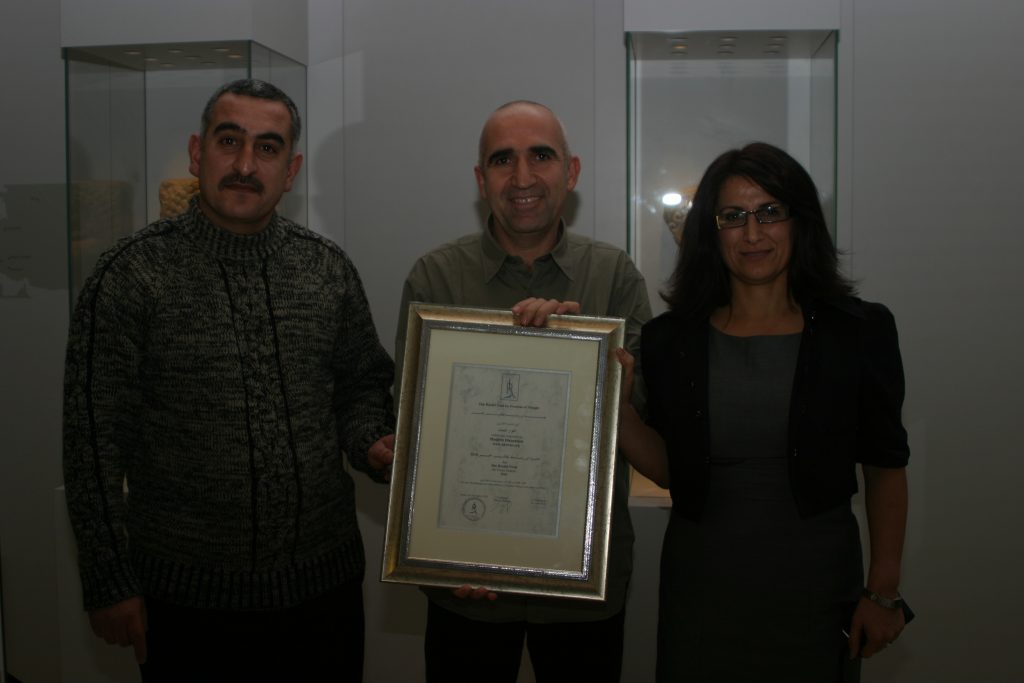
From left to right: Al-Hewar al-Mutamaddin Team: Fawaz Farhan, Bayan Gubrail Saleh, Rezgar Akrawi
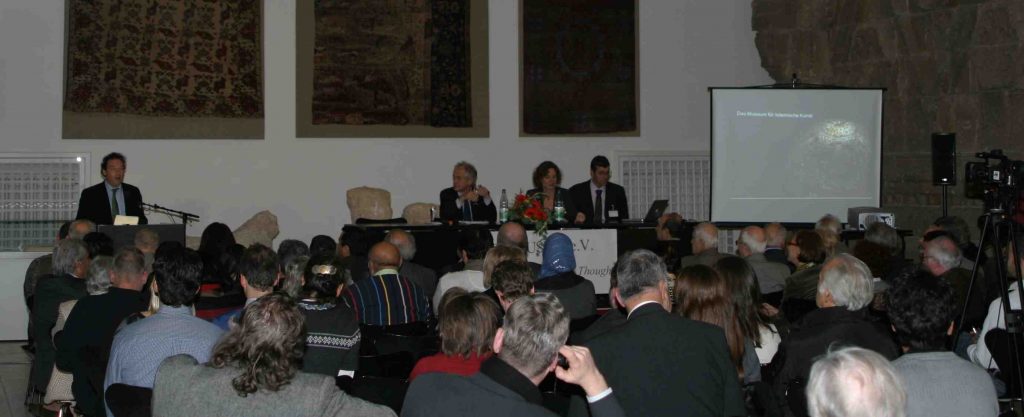
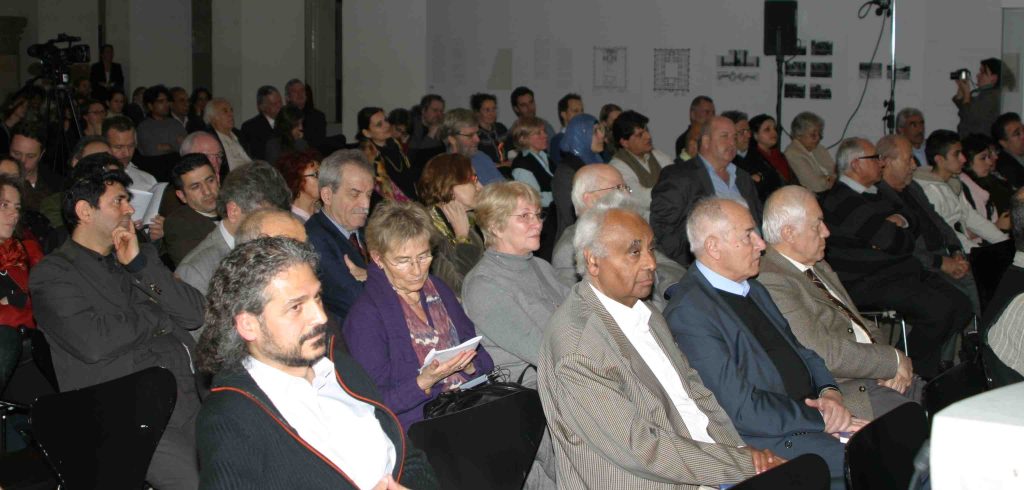
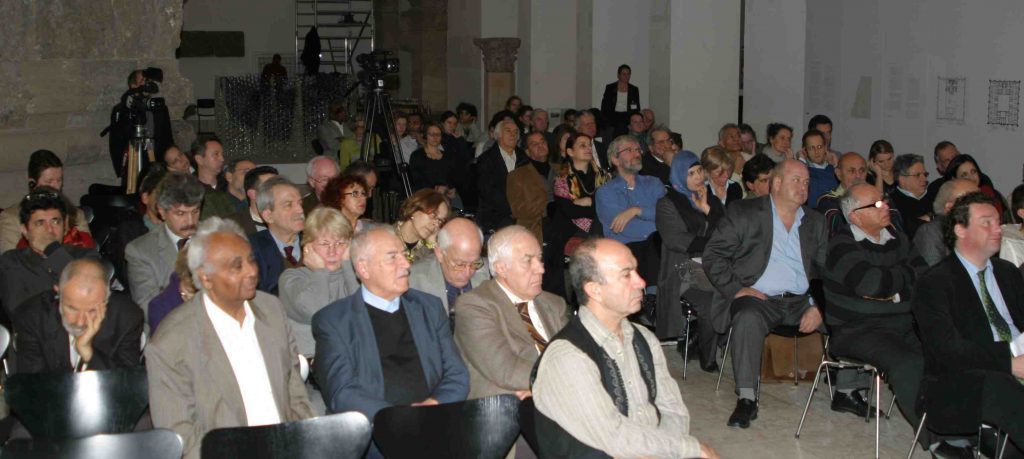
About 90 persons – Arab and german personalities, academics and representatives in the fields of culture, politics and society – gathered in the Museum of Islamic Arts, surrounded by the stony walls of the Umayyad winter residence Qasr Mshatta of the 8th century in Berlin. Some guests came from far away, from Heidelberg, Bremen and Karlsruhe. Before and after the press conference some journalists took the chance to interview the prize winner and laudatory speaker. Baqlawa and Tea are being served.
Text: Abier Bushnaq
Photo: Berit Rackwitz and Sami Ibrahim




